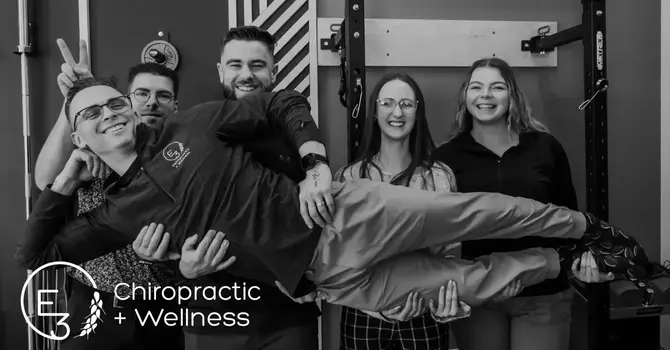.jpg)
If you're a runner and you've experienced knee pain, you may have heard of a condition called "runner's knee." Also known as patellofemoral pain syndrome (PFPS), runner's knee is a common overuse injury that affects the knee joint. While rest and ice can help alleviate symptoms in the short term, physiotherapy is often recommended for long-term relief and prevention of recurrence. In this blog post, we'll explore how physiotherapy can help with runner's knee, with a focus on the benefits of Saskatoon physiotherapy.
First, let's take a closer look at what runner's knee is and what causes it. Runner's knee is a broad term used to describe several conditions that cause pain around the patella (kneecap). It is typically caused by overuse, poor biomechanics, or a combination of the two. Common risk factors include overtraining, weak quadriceps muscles, tight hamstrings or IT bands, flat feet or overpronation, and a history of knee injuries.
So, how can physiotherapy help with runner's knee? Here are a few ways:
- Identify the underlying cause
- One of the primary goals of physiotherapy is to identify the underlying cause of runner's knee. A physiotherapist will assess your knee and surrounding structures and your running gait to determine what may be contributing to your pain. This may involve performing specific tests or using imaging to rule out other potential causes. By identifying the root cause of your pain, your physiotherapist can develop a personalized treatment plan to address your specific needs.
- Develop a treatment plan
- Once the underlying cause of your runner's knee has been identified, your physiotherapist will develop a treatment plan to help alleviate your pain and prevent future injury. This may include a combination of exercises, stretches, manual therapy techniques, and education on proper running form and footwear. Your physiotherapist may also recommend modifications to your training program to reduce the stress on your knee joint.
- Strengthen weak muscles
- As mentioned earlier, weak quadriceps muscles are a common risk factor for runner's knee. A physiotherapist can develop a targeted exercise program to strengthen your quadriceps and other muscles that support the knee joint, such as the glutes and hamstrings. By improving muscle strength and balance, you can reduce the load on your knee joint and reduce your risk of developing runner's knee in the future.
- Improve flexibility
- Tight hamstrings and IT bands can also contribute to runner's knee. Your physiotherapist can develop a stretching program to improve your flexibility and reduce the tension in these muscles. By improving your flexibility, you can reduce the strain on your knee joint during running and other activities.
- Use manual therapy techniques
- Manual therapy techniques, such as massage, mobilization, and manipulation, can also be effective in treating runner's knee. These techniques can help reduce pain and inflammation, improve joint mobility, and promote healing. Your physiotherapist can determine which techniques are appropriate for your specific needs and incorporate them into your treatment plan.
Now, let's talk specifically about the benefits of E3 Physiotherapy in Saskatoon for runner's knee. E3 is home to physiotherapists that specialize in sports injuries, including runner's knee. By seeking treatment at E3, you can benefit from the following:
- Experienced physiotherapists
- E3 is home to physiotherapists who specialize in sports injuries, many of whom have experience working with runners. By seeking treatment from an experienced physiotherapist, you can be confident that you're receiving the best possible care.
- State-of-the-art facilities
- E3 Physiotherapy in Saskatoon is well-equipped with state-of-the-art facilities, providing cutting-edge equipment and technology to diagnose and treat runner's knee. These state-of-the-art facilities enable you to receive the most advanced care available for your condition.
- Comprehensive treatment options
- Saskatoon physiotherapy clinics offer a wide range of treatment options to help you recover from runner's knee. In addition to exercise and manual therapy, some clinics may offer complementary therapies such as acupuncture, dry needling, or electrotherapy. By having access to a variety of treatment options, you can receive comprehensive care that meets your individual needs.
- Collaborative approach
- E3 takes a collaborative approach to treatment, working closely with other healthcare providers such as Chiropractor’s and massage therapists. This approach can ensure that you receive a holistic treatment plan that addresses all aspects of your injury and promotes long-term recovery.
- Education and prevention
- In addition to treating runner's knee, E3 can also provide education on injury prevention and running form. By learning how to properly warm up before a run, stretch effectively, and maintain good running posture, you can reduce your risk of developing runner's knee in the future. Your physiotherapist can also provide guidance on appropriate footwear and training schedules to help you avoid overuse injuries.
In conclusion, runner's knee can be a frustrating and painful condition for runners. However, by seeking treatment from a physiotherapist, you can develop a personalized treatment plan to address the underlying cause of your pain and prevent future injury. E3 physiotherapy in Saskatoon offers experienced physiotherapists, state-of-the-art facilities, comprehensive treatment options, a collaborative approach, and education on injury prevention and running form.
By taking advantage of these benefits, you can receive the best possible care for runner's knee and get back to doing what you love – running pain-free.
Don’t let your knee pain hold you back from running. Click HERE book an appointment at E3 today!





